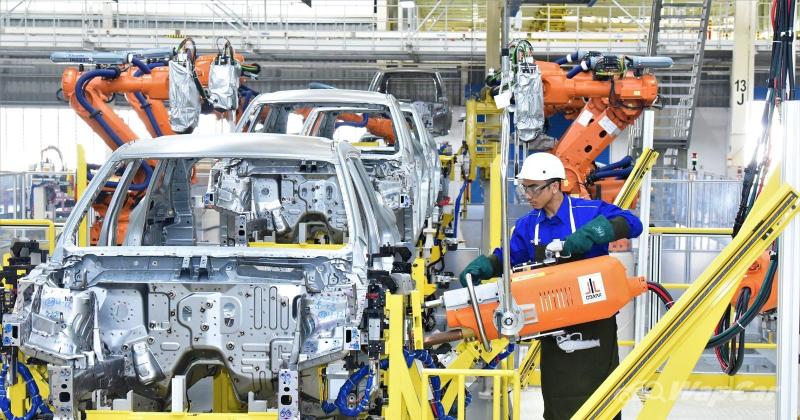
Car manufacturers are bracing for an increase in manufacturing cost for at least the next 6 months as chronic shortage in semiconductor chips for cars drive up prices.
The matter is serious enough that manufacturers from USA, European Union, Japan have reportedly escalated the matter to their respective countries’ diplomatic channels to secure for more supply from Taiwan, according a report from Reuters.

Taiwan is one of the world’s biggest supplier of semiconductors and the global shortage in threatening economic recovery of many countries.
“The Americans did express the expectation late last year,” an official at Taiwan’s Ministry of Economic Affairs told Reuters.
“At the moment everyone is talking to each other through diplomatic channels, including TSMC. Everyone’s hands are tied with orders, but from the government’s perspective we will try to help as much as we can for our important allies.”
![Global shortage of semiconductor chips for cars will drive prices up 01]()
Car manufacturers in many parts of the world have either cut back on working hours or temporarily putting their manufacturing staff on furlough owing to the shortage in chip supply.
A report by Japan’s Nikkei today said Taiwan Semiconductor Manufacturing Co. (TSMC), the world's largest contract chipmaker, and its Taiwanese peers are considering another round of price increases mainly on automotive chips.
![Global shortage of semiconductor chips for cars will drive prices up 02]()
The business publication reports that TSMC’s subsidiaries Vanguard International Semiconductor, which specializes in automotive electronics, and other Taiwanese players including United Microelectronics Corp. are considering price hikes of up to 15 percent.
If negotiations with their clients go through, this will be the second round of price hike, following a 10 – 15 percent increase late last year.
The cause of the chip supply shortage is mostly due to manufacturers cutting back on orders at the beginning of the Covid-19 pandemic. Now that many countries is on the path to economic recovery, demand is increasing faster than chip foundaries can ramp up.
The nature of the manufacturing industry means that orders must be locked in at least 3 to 6 months in advance, but market conditions are changing too fast for chip foundries to react.
![Global shortage of semiconductor chips for cars will drive prices up 03]()
As many people began working from home and spend more time entertaining themselves at home, there have been a rapid increase in demand for laptop, home entertainment and gaming consoles, which exaggerated the supply crunch.
A senior Taiwan government official familiar with the issue told Reuters there was not much they could do.
“They dropped their orders due to various reasons when demand was low amid the pandemic. But now they want to boost their production.”
Automotive electronics now account for about 40 percent of a car’s cost. As consumers demand for fancier infotainment and safety features, and as exhaust emission standards tighten further, car companies rely heavily on automotive electronics suppliers.
The shortage is starting to impact manufacturers in Malaysia but most manufacturers’ official communication message will still say that the issue with Covid-19 and a prolonged MCO – which complicates vehicle registration and showroom opening (government makes no restrictions but local councils may overrule) – are bigger problems than chip supply shortage. More details here.













Comments